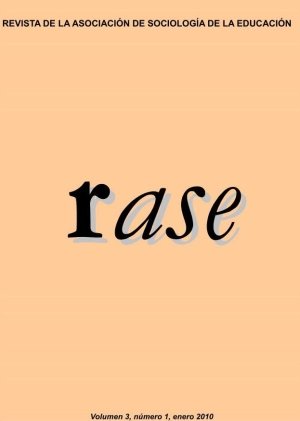Times and places of Gypsies in public Portuguese school
DOI:
https://doi.org/10.7203/RASE.3.1.8629Keywords:
Gypsies, school, Ethnic habitus, ethnicity locations, Family socialization Abstract
Abstract
Taking into consideration the traditional withdrawal from public school of children and young people of Gypsy culture, either in Portugal or in European countries where these communities are present, we attempt, in this paper, to develop some reflections around some of the socio-cultural processes that are at the origin of this phenomenon.
Through the interpretative analysis of the contexts and processes observed throughout a field research of ethnographical character, where the participating observation was constituted by the privileged methodological complex of the information collected, we attempt to deconstruct the traditional and linear explanation of this withdrawal based on the assumption that “Gypsies
do not like school”, highlighting some regularities in teachers’ practices with impact on what concerns (in)equality of opportunities. We aim to construct some analytical categories - compound habitus and ethnicity locations - that allow a better understanding of the relationship of Gypsies with the public school and vice-versa.
 Downloads
Downloads
Downloads
Published
How to Cite
-
Abstract333
-
PDF (Español)154
Issue
Section
License
![]()
This work is licensed under a Creative Commons Reconocimiento-NoComercial-CompartirIgual 4.0 Internacional.




